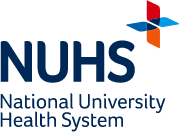
Hospital Clinician
Salary undisclosed
Checking job availability...
Original
Simplified
- Recognising and identifying, in a timely manner, a patient who is deteriorating clinically and in need of urgent intervention
- Reliably notifying the specialist-in-charge, in a timely manner, and coordinating a team of healthcare staff to assist in the care of the patient.
- Reliably performing a targeted clinical assessment to obtain information necessary for diagnosis and subsequent management.
- Ordering initial investigations to further narrow the differential diagnosis and guide management.
- Instituting, in a timely manner, appropriate management steps to stabilise the patient.
- Reliably leading a team in performing a code based on ACLS principles, if applicable
- Initiating transfer of the patient to a higher level of care (i.e. ICU) where appropriate
- Updating the patient and/or family throughout the process and involve them in shared decision making for the care plan.
- Fever
- Chest pain
- Shortness of breath
- Abdominal pain
- Limb swelling
- Dizziness
- Falls
- Syncope
- Neurological deficits
- Headache
- Altered mental state
- Oliguria
- Acute gastrointestinal bleeding
- Sepsis
- Stroke
- Tachy- and Bradyarrhythmias
- Asthma/COPD
- Pulmonary embolism, deep venous thrombosis, hypercoagulable state
- Acute coronary syndrome
- Heart failure
- Fluid overload
- Poor controlled diabetes
- Hypertensive emergency
- Shock
- Electrolyte abnormalities
- Alcohol & drug overdose/intoxication
- Head injury
- Acute arthritis
- Bleeding GIT
- Management of pain
- Transfusion medicine
- End-of-life care
- Advanced care planning
- Informed consent
- Shared decision making
- Communication (with patients and other healthcare professionals)
- Systems-based practice and transitions of care
- Education, Training and Experience
- Medical staff who have completed basic specialist training and is at least Post Graduate Year (PGY) 5 of training for Singaporeans or Permanent Residents (PR) of Singapore
- For non-Singaporeans or non-PRs, the medical staff must have at least worked in a Singapore public healthcare institution for 5 years
- Professional License
- Must be registered with the Singapore Medical Council
- Recognising and identifying, in a timely manner, a patient who is deteriorating clinically and in need of urgent intervention
- Reliably notifying the specialist-in-charge, in a timely manner, and coordinating a team of healthcare staff to assist in the care of the patient.
- Reliably performing a targeted clinical assessment to obtain information necessary for diagnosis and subsequent management.
- Ordering initial investigations to further narrow the differential diagnosis and guide management.
- Instituting, in a timely manner, appropriate management steps to stabilise the patient.
- Reliably leading a team in performing a code based on ACLS principles, if applicable
- Initiating transfer of the patient to a higher level of care (i.e. ICU) where appropriate
- Updating the patient and/or family throughout the process and involve them in shared decision making for the care plan.
- Fever
- Chest pain
- Shortness of breath
- Abdominal pain
- Limb swelling
- Dizziness
- Falls
- Syncope
- Neurological deficits
- Headache
- Altered mental state
- Oliguria
- Acute gastrointestinal bleeding
- Sepsis
- Stroke
- Tachy- and Bradyarrhythmias
- Asthma/COPD
- Pulmonary embolism, deep venous thrombosis, hypercoagulable state
- Acute coronary syndrome
- Heart failure
- Fluid overload
- Poor controlled diabetes
- Hypertensive emergency
- Shock
- Electrolyte abnormalities
- Alcohol & drug overdose/intoxication
- Head injury
- Acute arthritis
- Bleeding GIT
- Management of pain
- Transfusion medicine
- End-of-life care
- Advanced care planning
- Informed consent
- Shared decision making
- Communication (with patients and other healthcare professionals)
- Systems-based practice and transitions of care
- Education, Training and Experience
- Medical staff who have completed basic specialist training and is at least Post Graduate Year (PGY) 5 of training for Singaporeans or Permanent Residents (PR) of Singapore
- For non-Singaporeans or non-PRs, the medical staff must have at least worked in a Singapore public healthcare institution for 5 years
- Professional License
- Must be registered with the Singapore Medical Council

